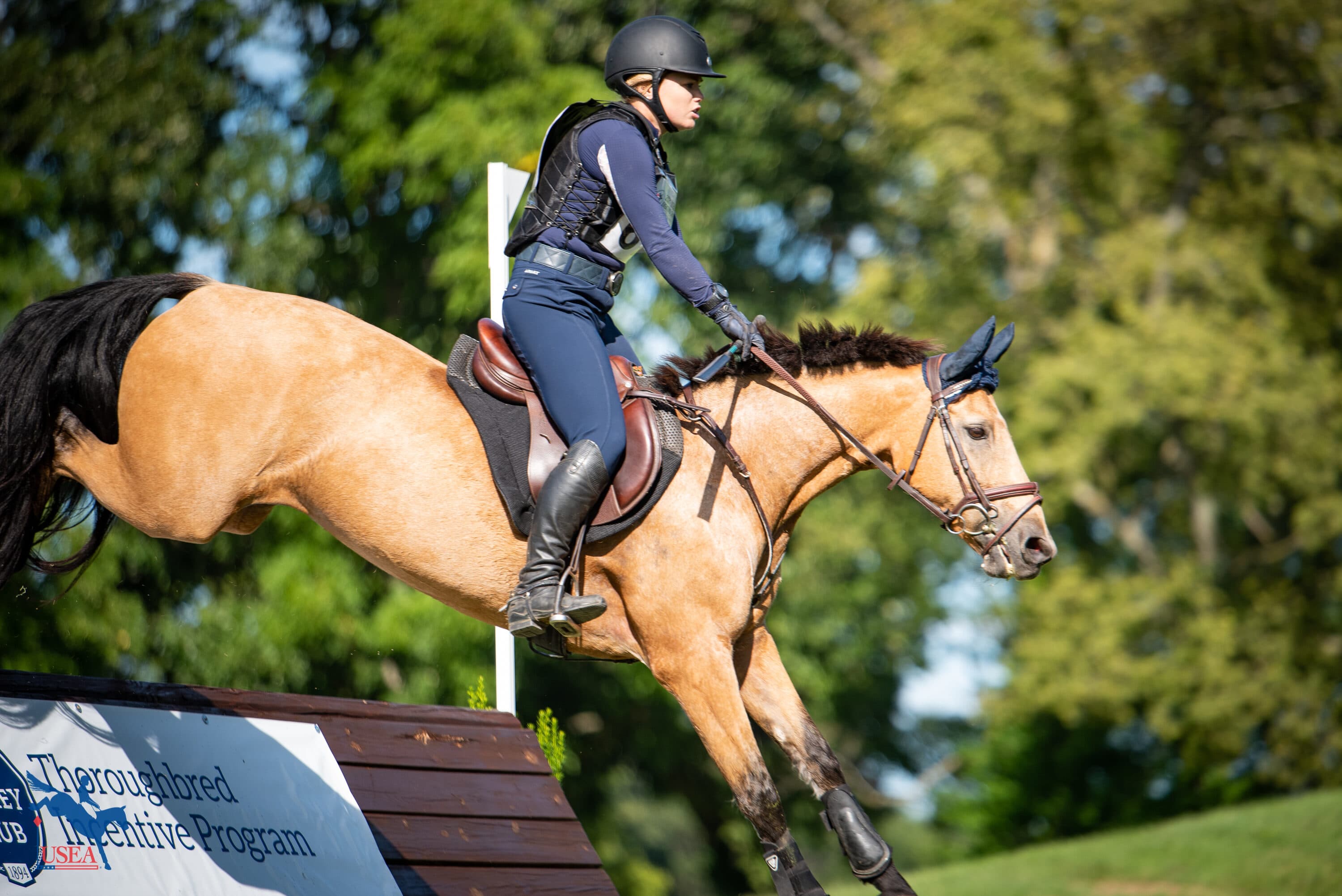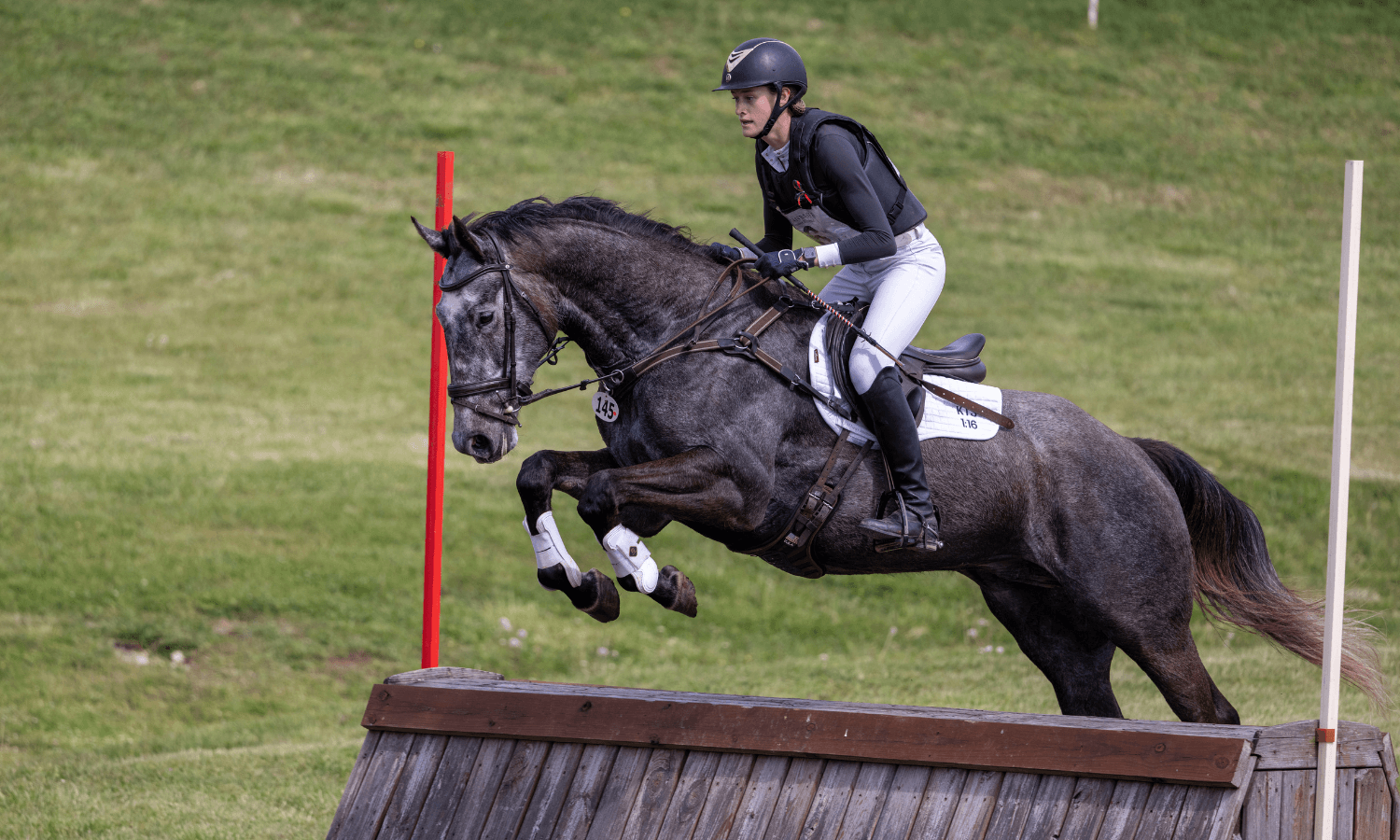What’s an ERQI? Helping Riders Make Informed Decisions with the ERQI Rating

“Where can we even find this?” asked a participant during the ERQI Reports for Officials and How to Use Them session at the 2021 USEA Annual Meeting & Convention. Forum leaders Cindy Deporter, Rob Burk, and Tim Murray were on-hand to answer this question and many more as they explained the origins of the ERQI ratings and the purpose of the algorithm’s measurement.
The Basics of ERQI
The USEA began its partnership with EquiRatings to release the EquiRatings Quality Indexes (EQRIs) for all horses in 2018. Each horse registered with the USEA has an ERQI report assigned to them based on its competition history and a comparative analysis of the competition division. Utilizing a mathematical algorithm, the ERQI report is created for each horse establishing a predicted level of success for all competition levels. Horses may be assigned green, yellow, orange, or amber color codings to reflect the ERQI algorithms predicted suitability for a horse at a certain level.
“This is an educational tool,” said Burk during the panel discussion. “Other countries use it to prevent riders from competing at an inappropriate level for an individual horse. At this time, the USEA is only using it as a tool for riders to use when evaluating their horse’s competition success.”
Only the owner/rider of the horse who has the horse assigned to them in the USEA database may access that horse’s ERQI rating. You may find the ERQI rating for your horses in the USEA Online Services under the ‘My Related Horses’ tab. Beside each horse’s profile will be the ERQI rating strategically computed for that horse. In addition, prior to each competition, a list of horses who are entered in divisions in which they fall under the amber category are sent to event organizers to be reviewed after the completion of the dressage phase merely as an additional notification tool of horses who may or may not have difficulty competing at the level in which they are entered. The ERQI rating is not a tool to evaluate a horse’s eligibility to compete at an individual level at this time.
Green Means Go
“Think of the colors as a stoplight,” commented Deporter as she pulled up the ERQI ratings on one of her horses on her USEA profile as an example. “Green means go, yellow means think about it, and red means maybe you should stop and think about this.”

The ERQI ratings for each horse are accumulated by comparing the data from a horse’s competition history. Dressage is not taken into account, but jump faults in show jumping and cross-country are. Time faults also do not have an impact on a horse’s score.
“This system is more precise with more data,” Burk commented. “The more records a horse has in the USEA system, the more accurate the ERQI rating might be. Just because a horse has an amber rating doesn’t always mean it will fail. It’s a statistical tool to help riders assess and make educated decisions.”
Deporter chimed in that she would hope more trainers would utilize the tool when deciding if a horse and rider duo are prepared for a move-up. There were many questions about the ERQI report system, as well as suggestions for how the USEA can utilize the program moving forward. Burk reflected that he would be taking these ideas to the appropriate USEA Committees during the week of Convention for further discussion.
How ERQI is Being Used at this Time
Currently, the USEA sends out an ERQI report to show officials at each event, but it is not to be distributed to the technical delegate (TD) until dressage has been completed. That is done because the ERQI report is meant to be a tool to indicate horses that may need closer watching on-course and is not meant to have an impact on scoring or a judge’s perspective of a pair. This report is not shared publicly and should not prompt a discussion between safety officials and the riders prior to a rider's ride time.
It is important to note that the ERQI rating is assigned to an individual horse and not the rider, however, Burk commented that it wouldn’t be unusual to find multiple horses with established competition records that are assigned to the same rider having a similar level ERQI rating.
For now, the ERQI rating is a tool to be used on your own as a means for gauging success or making decisions related to competing. Deporter put it best in the presentation, “This is a tool for owners, riders, trainers, and parents It is meant to help individuals make informed decisions regarding competition and moving up.”















